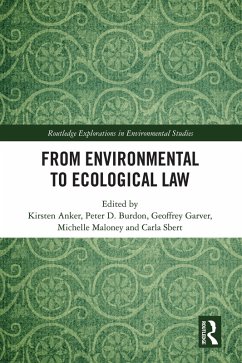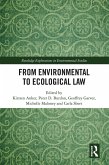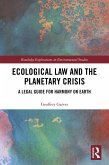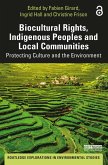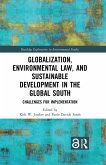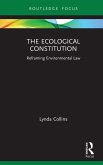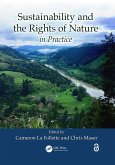Presenting new thinking in the field, this book focuses on problem areas of contemporary law including environmental law, property law, trusts, legal theory and First Nations law and explains how ecological law provides solutions. Written by ecological law experts, it does this by 1) providing an overview of shortcomings of environmental law and other areas of contemporary law, 2) presenting specific examples of these shortcomings, 3) explaining what ecological law is and how it provides solutions to the shortcomings of contemporary law, and 4) showing how society can overcome some key challenges in the transition to ecological law.
Drawing on a diverse range of case study examples including Indigenous law, ecological restoration and mining, this volume will be of great interest to students, scholars and policymakers of environmental and ecological law and governance, political science, environmental ethics and ecological and degrowth economics.
Dieser Download kann aus rechtlichen Gründen nur mit Rechnungsadresse in A, B, BG, CY, CZ, D, DK, EW, E, FIN, F, GR, HR, H, IRL, I, LT, L, LR, M, NL, PL, P, R, S, SLO, SK ausgeliefert werden.
Cormac Cullinan, author of Wild Law: A Manifesto for Earth Justice
"No more insightful book today explores how environmental laws fail us by addressing symptoms, "externalities," not root causes. Grounding law upon ecological foundations can restore Earth's community of life through a resilient order of evolved norms. This book is essential reading for everyone who struggles with climate disruption and biodiversity's broken web of life."
Nicholas A. Robinson
Former Chair of the IUCN World Commission on Environmental Law
Executive Governor, International Council of Environmental Law
Kerlin Professor Emeritus, Elisabeth Haub School of Law at Pace University
"This book offers a stimulating and important perspective."
Edith Brown Weiss
Former Chair of the World Bank Inspection Panel
Georgetown Law, Washington, DC

